The Diyanet 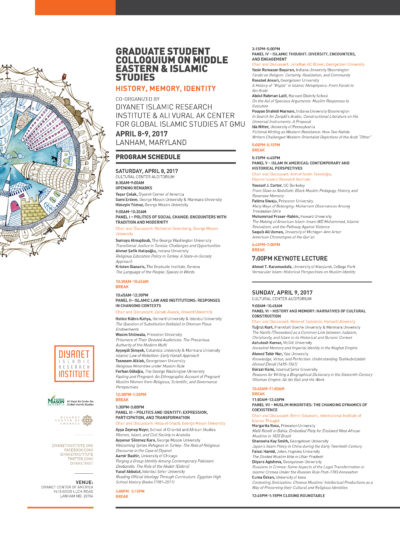 Islamic Research Institute organized its first Graduate Student Colloquium on Middle Eastern & Islamic Studies on April 8th-9th , 2017 at the Diyanet Center of America in Lanham, Maryland. The 2017 inaugural meeting addressed three broad themes: History, Memory, and Identity.
Islamic Research Institute organized its first Graduate Student Colloquium on Middle Eastern & Islamic Studies on April 8th-9th , 2017 at the Diyanet Center of America in Lanham, Maryland. The 2017 inaugural meeting addressed three broad themes: History, Memory, and Identity.
Co-organized by the Ali Vural Ak Center for Global Islamic Studies at George Mason University (GMU), the Colloquium brought together more than thirty graduate students from all branches of social sciences and humanities to foster exchange of ideas and research and build networks among researchers from multiple disciplines. Paper presenters hailed from leading universities across the United States, the United Kingdom, Germany, and Turkey.
During the Colloquium, participants exchanged the state of art in their respective fields, explored opportunities for future collaborations and shared their ongoing research. 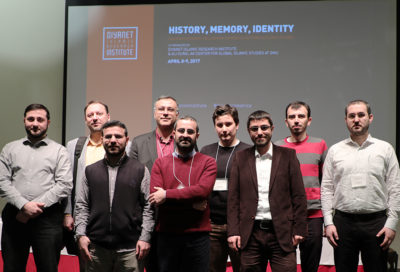
A diverse of group of prominent scholars from various disciplines joined the Colloquium’s seven panels over two days to serve as faculty respondents. Papers examined a broad range of themes including contemporary issues concerning Muslim minorities, historical manifestations of Muslim political and philosophical thought, and contemporary jurisprudential issues. The faculty respondents provided the presenters with detailed feedback and all panels witnessed a vibrant question and answer session.
The panels and their chairs included: “Politics of Social Change: Encounters with Tradition and Modernity,” chaired by Dr. Nathaniel Greenberg from GMU; “Islamic Law and Institutions: Responses in Changing Contexts,” chaired by Dr. Zainab Alwani of Howard University; “Politics and Identity: Expression, Participation and Transformation,” chaired by Dr. Heba el-Shazli from GMU; “Islamic Thought: Diversity, Encounters, and Engagement,” chaired by Dr. Jonathan AC Brown of Georgetown University; “Islam in Americas: Contemporary and Historical Perspectives,” chaired by Dr. Ahmet Selim Tekelioglu from the Diyanet Institute; “History and Memory: Narratives of Cultural Construction,” chaired by Dr. Himmet Taskomur of Harvard University; and “Muslim Minorities: The Changing Dynamics of Coexistence,” chaired by Dr. Ermin Sinanovic from the International Institute of Islamic Thought (IIIT).
The Colloquium also featured a keynote address, “Vernacular Islam: Historical Perspectives on Muslim Identity,” delivered by prominent University of Maryland, College Park historian Dr. Ahmet T. Karamustafa. Professor Karamustafa emphasized the need to explore and include in academic analysis the daily practices and lived aspects of religious traditions through historical contexts.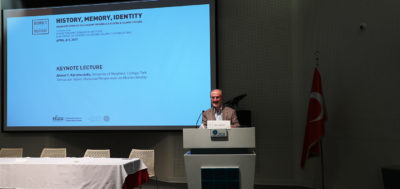
A concluding panel highlighted remarks by colloquium co-organizers and faculty respondents on the goals and thematic foci of the meeting. It was emphasized that although the Colloquium was put together in a short amount of time, it attracted vast interest from academic audiences. It was mentioned that the relationships built in the Colloquium would help the participants develop future academic collaborations and shape the direction of their research projects. The panel underlined that the Diyanet Islamic Research Institute not only develops research projects, supports scholars, and establishes educational initiatives but also collaborates with academic, intellectual, and civic partners to serve American and global Muslim communities. The Diyanet Center of America sponsored the event and covered accommodation, travel, and food costs for all participants. Following the panels the participants enjoyed the serene atmosphere at the DCA complex and its many facilities.
The full program of the Colloquium can be found here. For the Call for Papers, see this link.
Diyanet Institute’s upcoming activities can also be followed at Facebook.com/diyanetinstitute and Twitter.com/diyanetinst
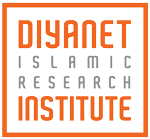

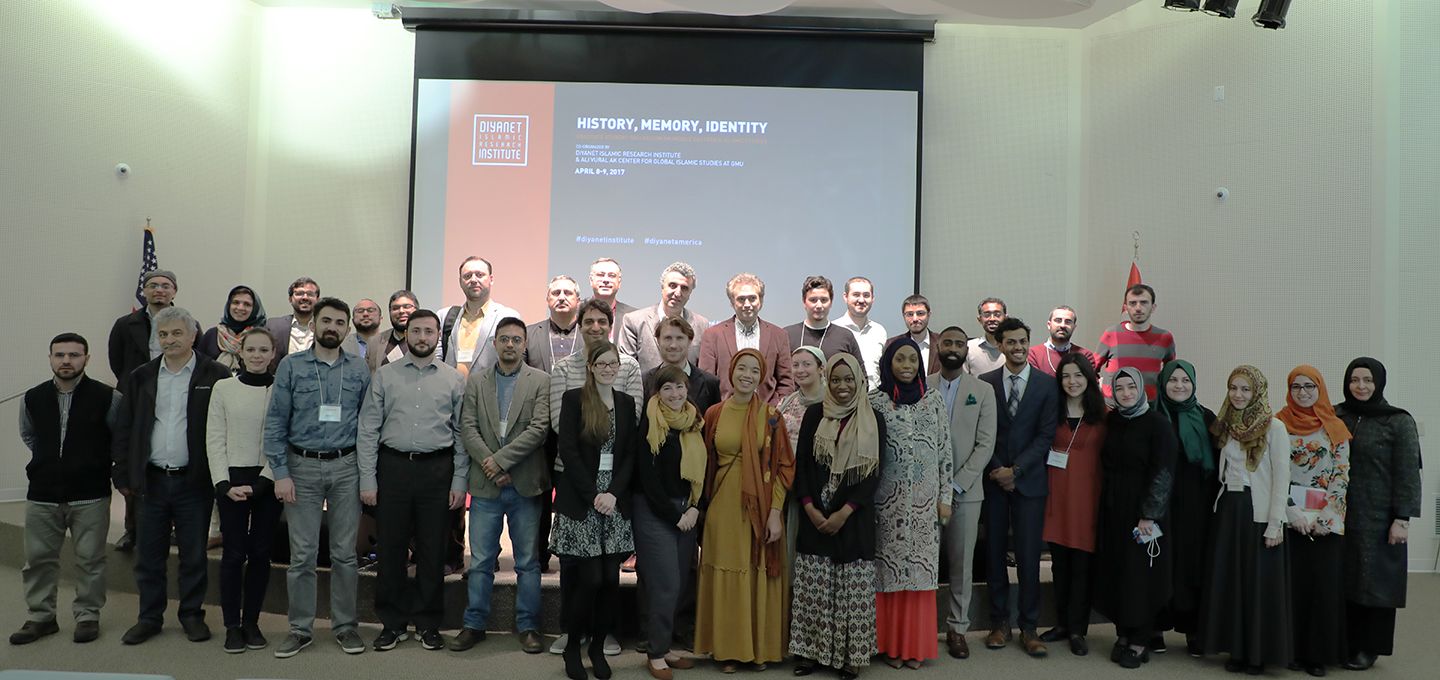
COMMENTS